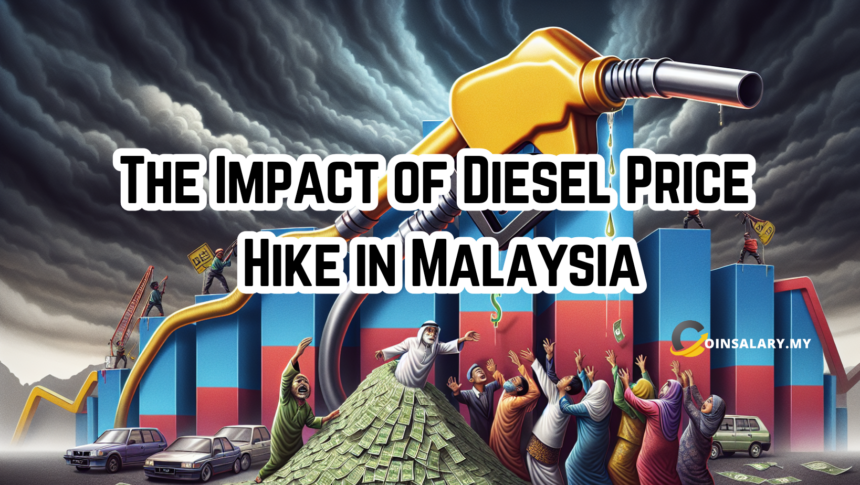The recent hike in diesel prices in Malaysia has generated significant concern among various stakeholders, from individual consumers to large industries. Diesel is a critical fuel for transportation and industry, and any fluctuation in its price can have widespread implications. This article explores the various ways the diesel price hike will affect Malaysia’s economy, consumers, and overall market dynamics.
Economic Impact
The increase in diesel prices directly affects the cost structure of businesses that rely heavily on transportation and logistics. Higher fuel costs mean higher operational costs, which can reduce profit margins. This scenario is particularly challenging for industries such as logistics, manufacturing, and agriculture, which depend on diesel-powered machinery and vehicles.
Moreover, higher diesel prices can lead to increased production costs. As businesses adjust to these higher costs, they often pass them on to consumers in the form of higher prices for goods and services. This can contribute to overall inflation, eroding the purchasing power of consumers.
Consumer Impact
For everyday consumers, the hike in diesel prices translates to higher transportation costs. Public transportation systems, such as buses and trucks that deliver goods, will face increased fuel expenses. Consequently, fare increases for public transport and higher prices for consumer goods are likely.
Additionally, private vehicle owners who use diesel will also feel the pinch. Increased fuel costs can significantly impact household budgets, especially for those who commute long distances or rely on personal vehicles for their livelihoods, such as taxi and ride-share drivers.
Inflationary Pressure
A rise in diesel prices contributes to inflation, which can have a ripple effect throughout the economy. When transportation and production costs go up, prices for a wide range of products, including food, clothing, and essential goods, can also increase. This not only affects the cost of living but can also slow down economic growth as consumers reduce spending due to higher prices.
The central bank may respond to inflation by adjusting interest rates, which can impact borrowing costs for both consumers and businesses. Higher interest rates can lead to reduced spending and investment, further slowing economic growth.
Government Response
The Malaysian government often plays a crucial role in managing the impact of fuel price hikes. Potential measures include:
- Subsidies: The government might reintroduce or increase subsidies for diesel to cushion the impact on consumers and businesses. However, this can strain the national budget.
- Alternative Energy: Encouraging the adoption of alternative energy sources, such as electric vehicles and renewable energy, can reduce dependency on diesel in the long run.
- Public Transport Improvements: Investing in public transportation infrastructure can provide affordable alternatives to diesel-dependent transportation.
Long-Term Considerations
In the long run, continuous increases in diesel prices could accelerate the shift towards more sustainable and cost-effective energy solutions. Businesses might invest more in energy-efficient technologies and renewable energy sources to mitigate the impact of volatile fuel prices. Additionally, consumers might be more inclined to adopt electric vehicles or other alternatives that reduce fuel dependency.
Conclusion
The diesel price hike in Malaysia has far-reaching consequences that affect the economy, consumers, and the overall market. Higher transportation and production costs can lead to increased prices for goods and services, contributing to inflation and affecting the cost of living. While the government can implement measures to mitigate these impacts, such as subsidies and investments in alternative energy, the long-term solution lies in reducing dependence on diesel and moving towards more sustainable energy sources. Understanding and addressing these impacts is crucial for ensuring economic stability and protecting consumers’ purchasing power in Malaysia.




